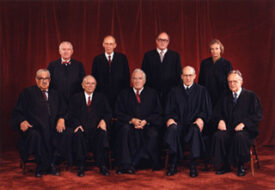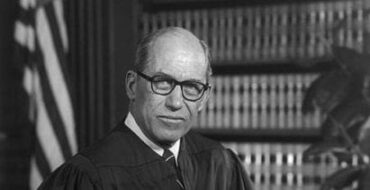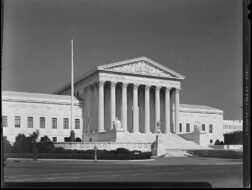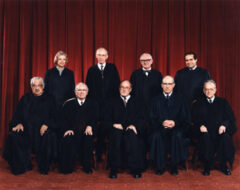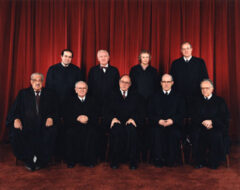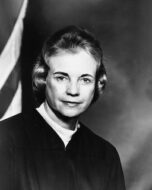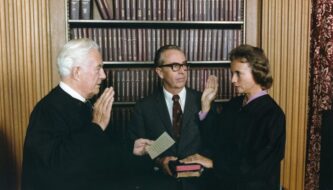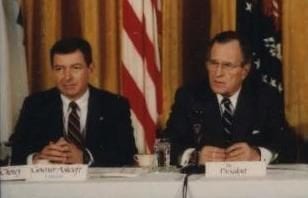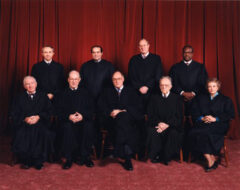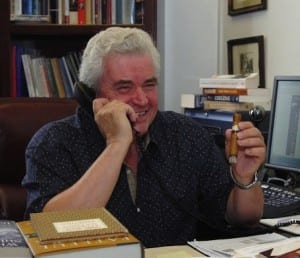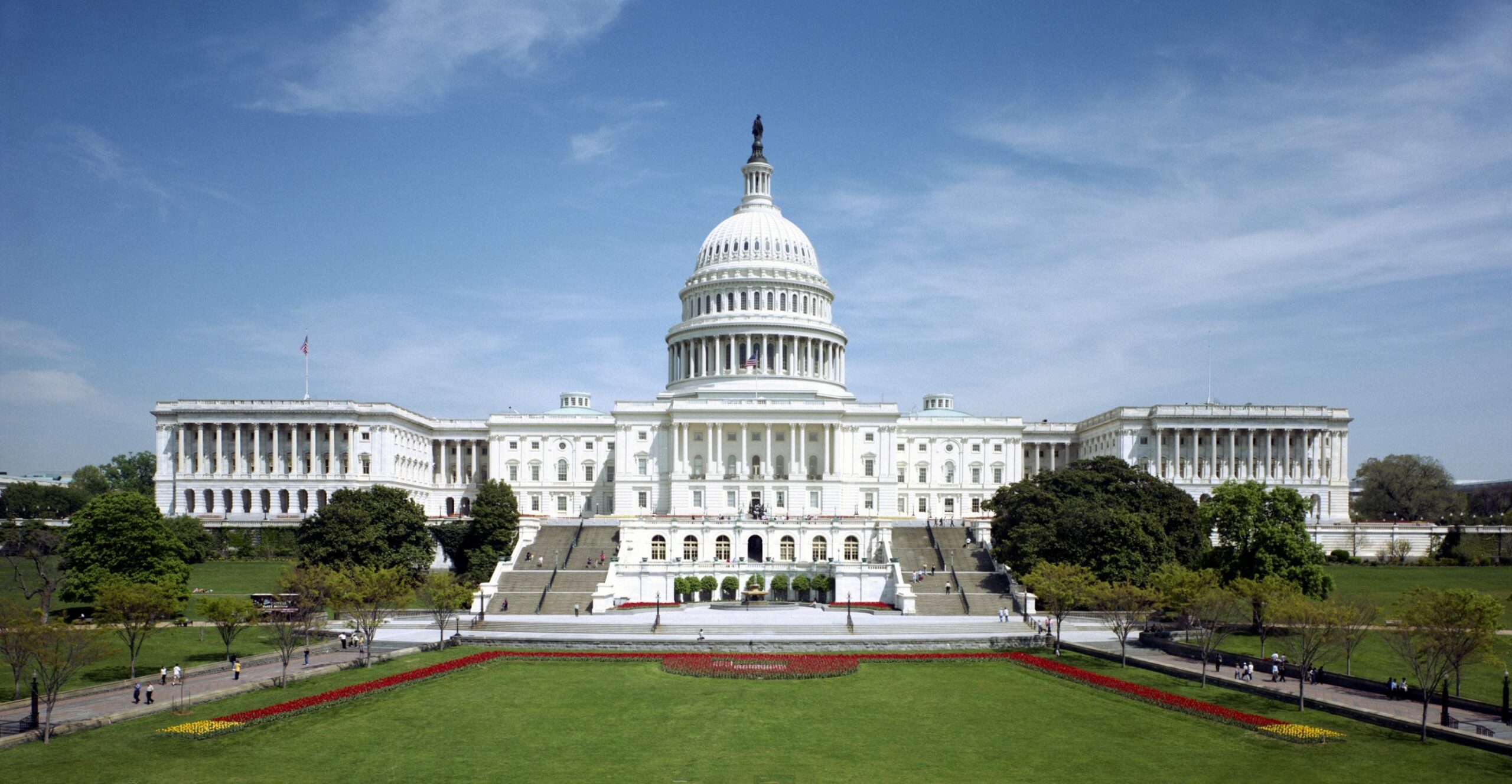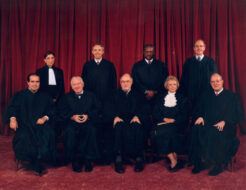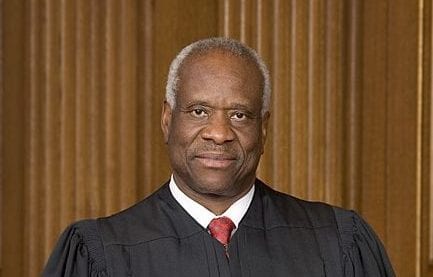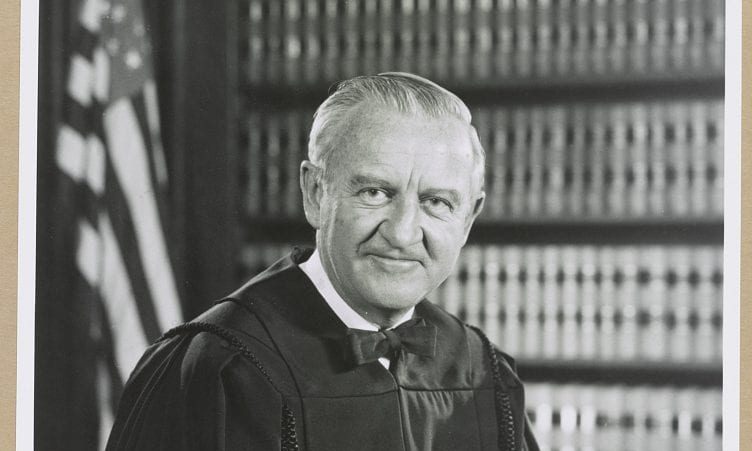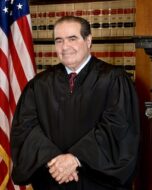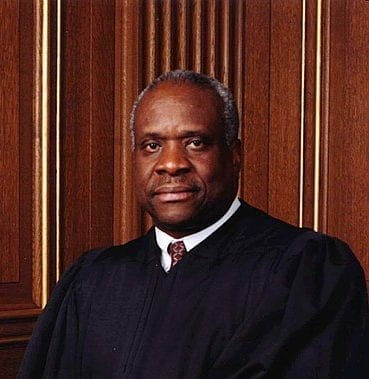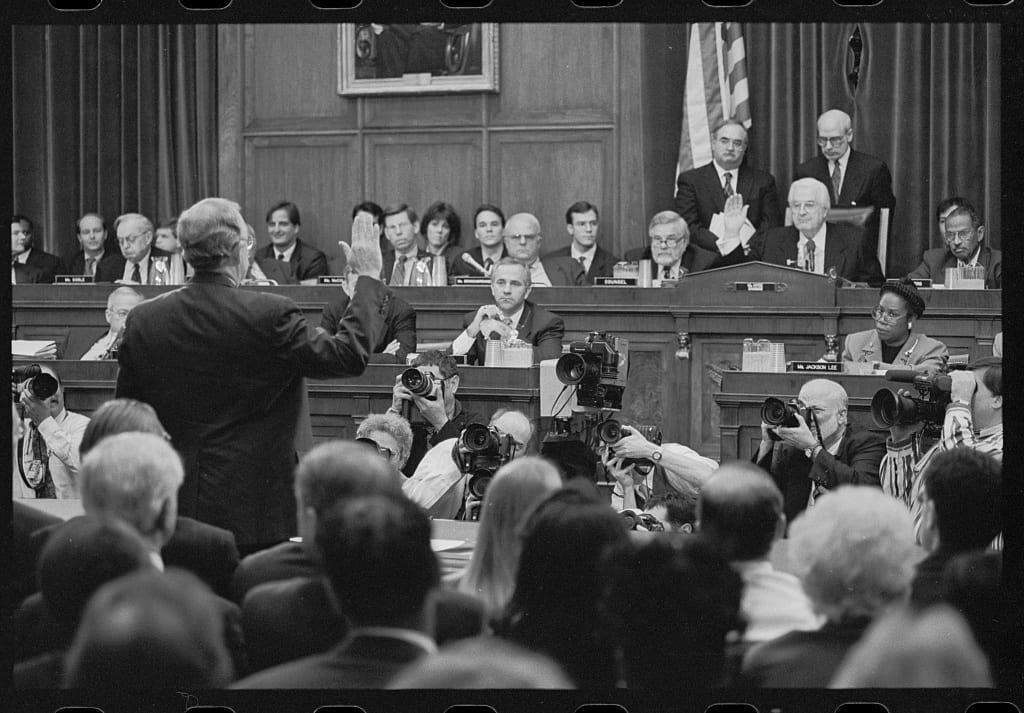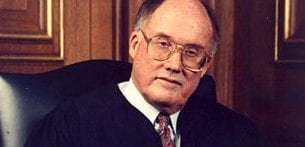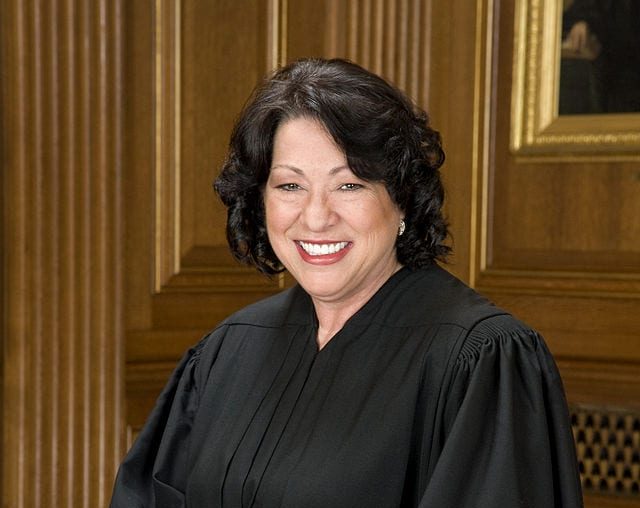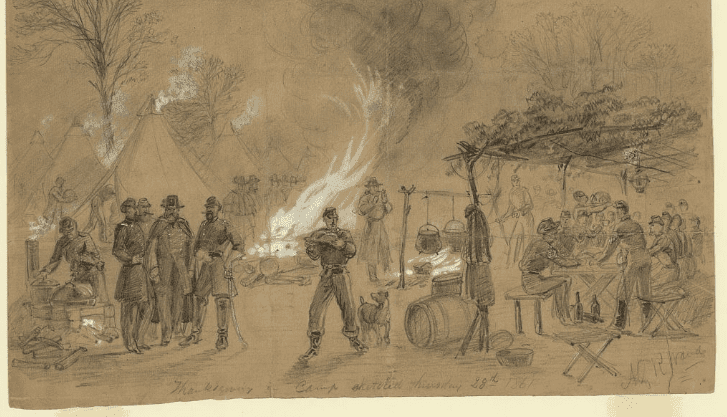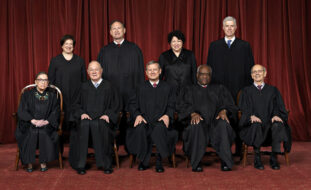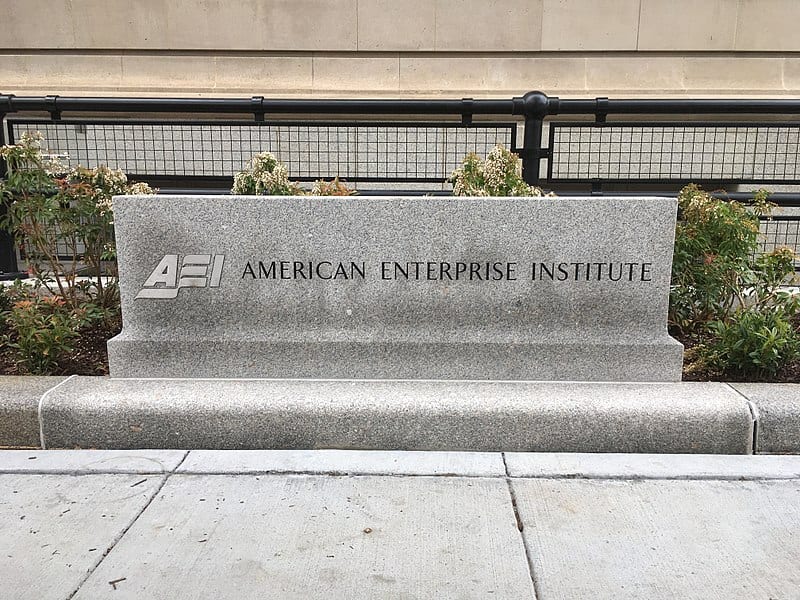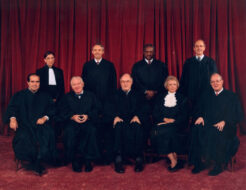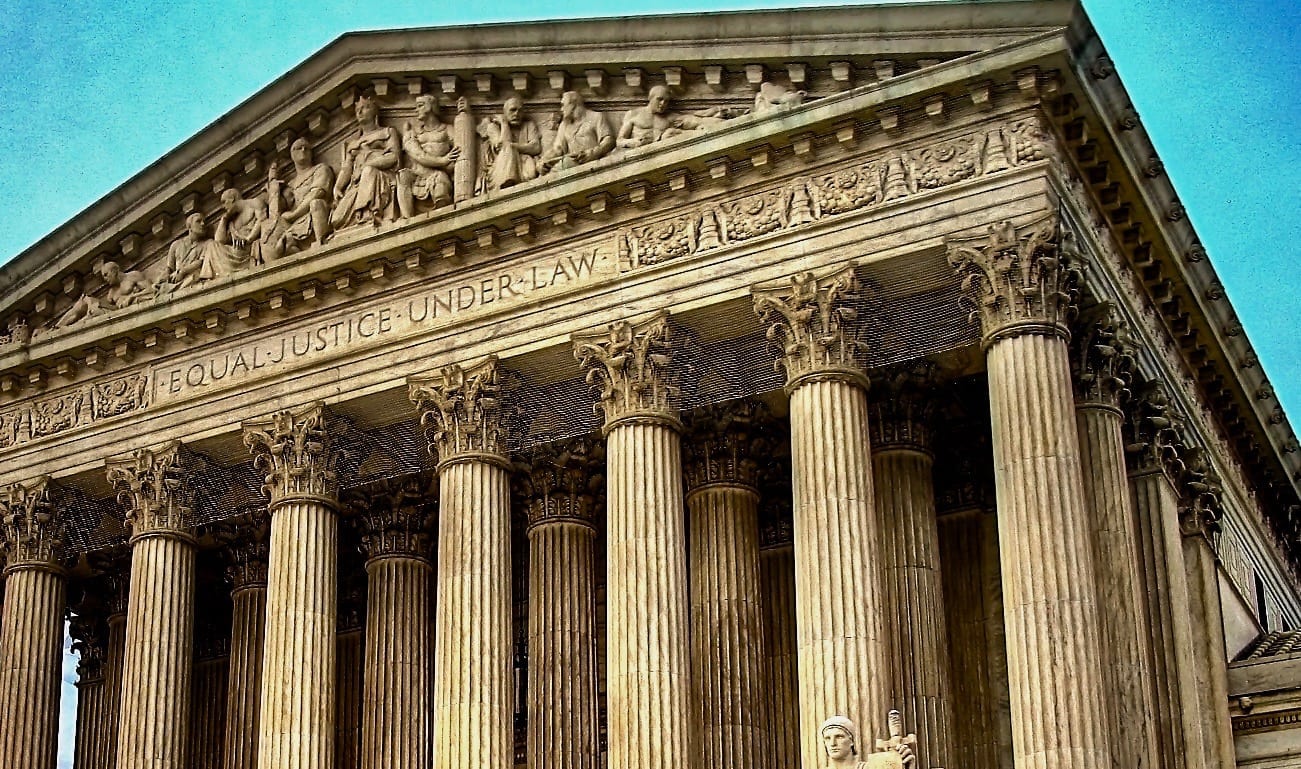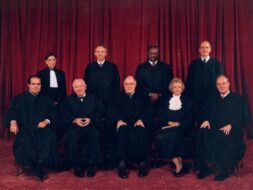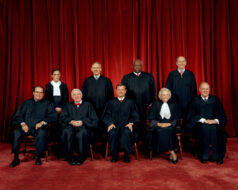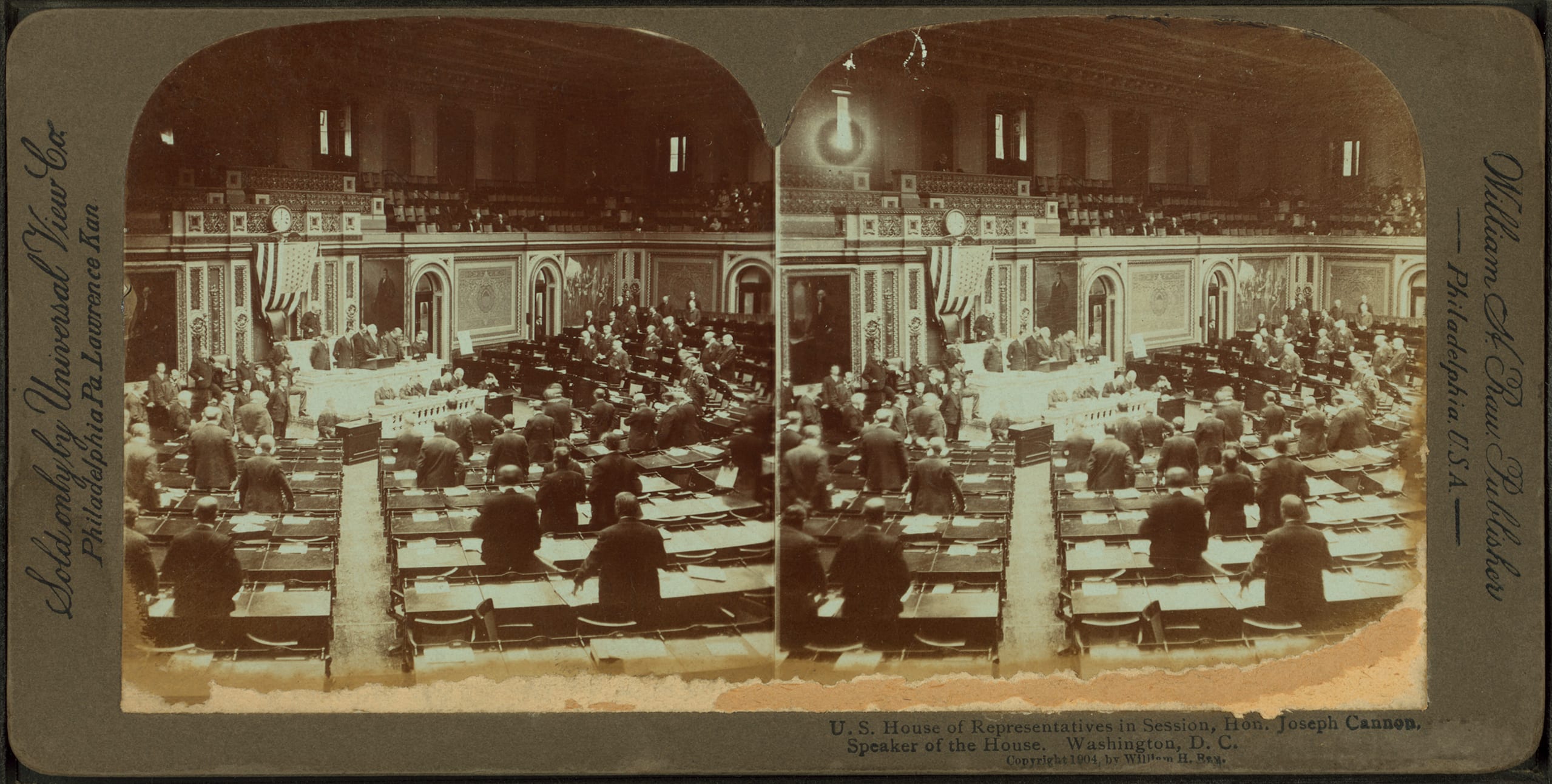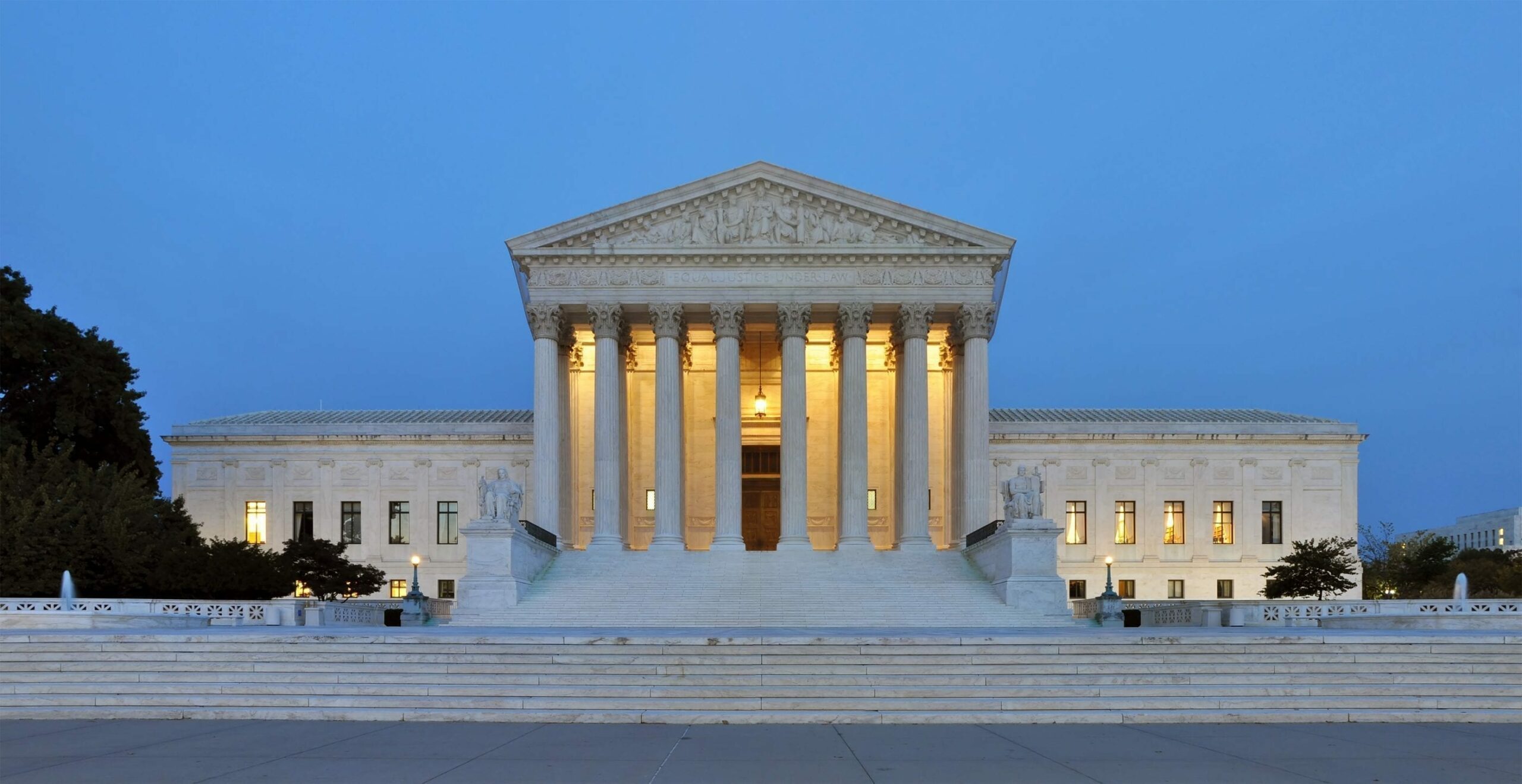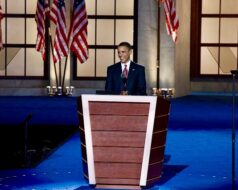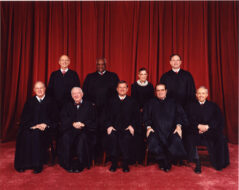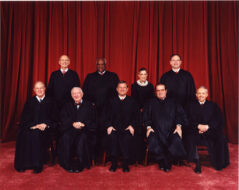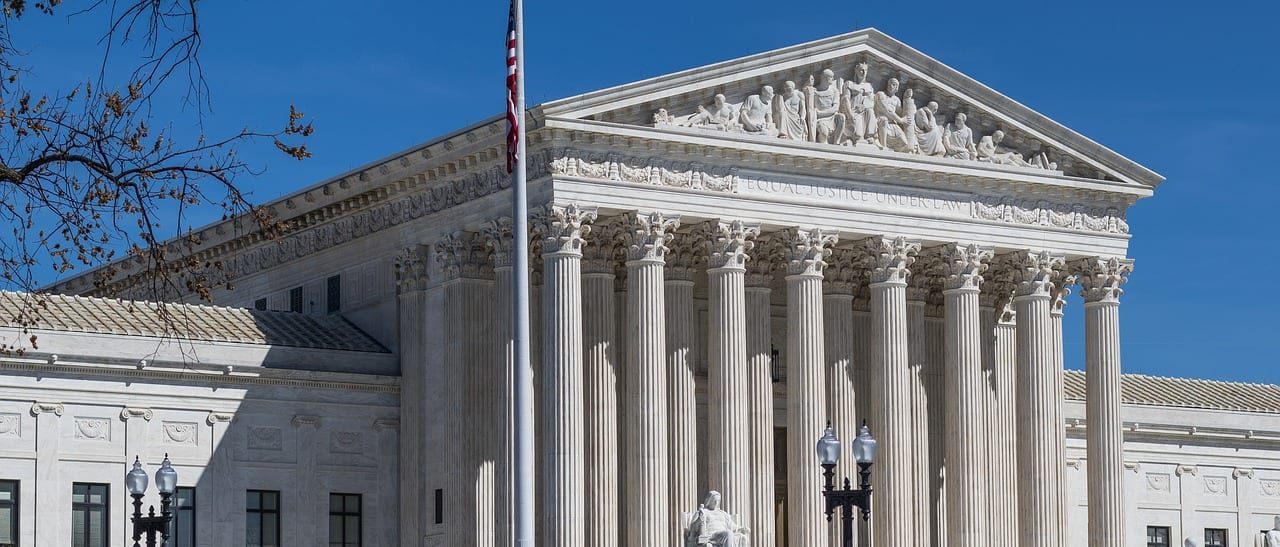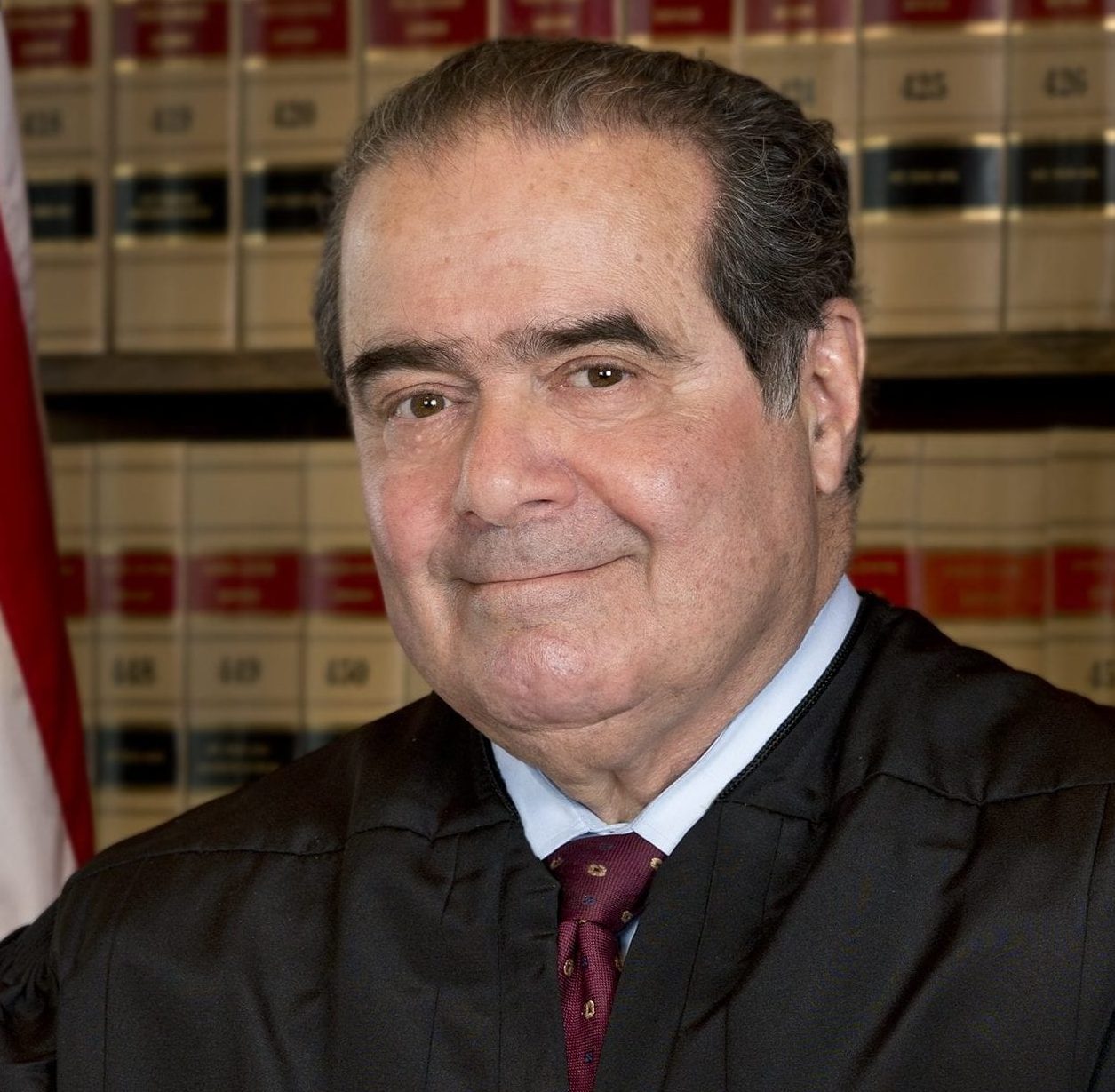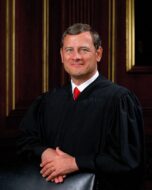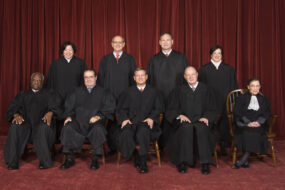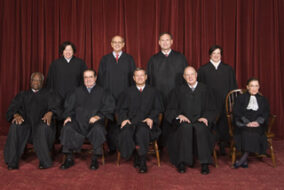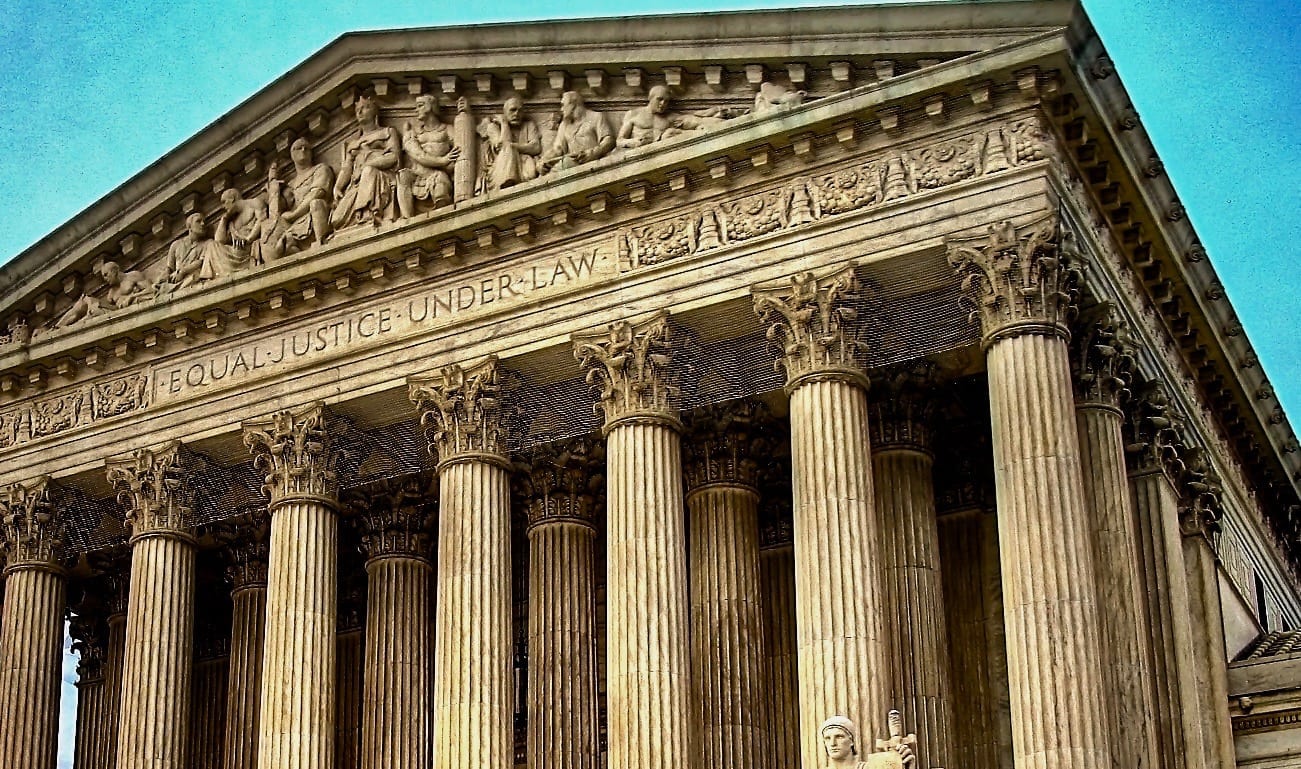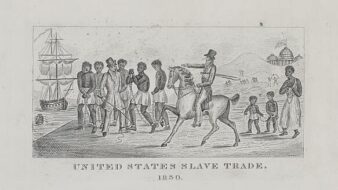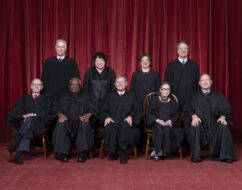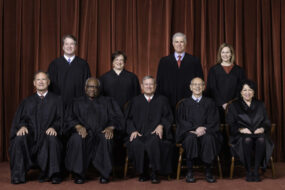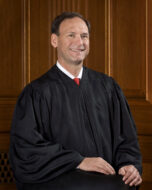

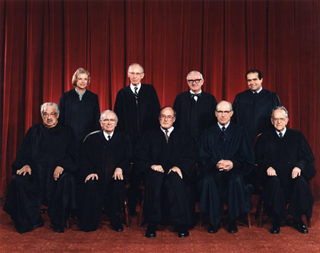
No related resources
Introduction
In this case, by a vote of 7 to 2, the Court prohibited as unconstitutional the state-required content of classroom speech by teachers. Specifically, the Court ruled unconstitutional a Louisiana law requiring that, if evolution were taught in a school, creationism must be also. In previous cases, such as those involving government aid to religious schools (see Everson v. Board of Education, and Widmar v Vincent), a prayer or posting of scripture (see Engel v. Vitale), a moment of silence (see Wallace v. Jaffree), or requirement of a flag salute (see West Virginia v. Barnette), the Court found restrictions on free speech and religious exercise or an establishment of religion. In this case, the Court extended its earlier doctrines about religious establishment to the content of a state school’s curriculum. As in Wallace v. Jaffree, the Court singled out statements of a legislator supporting the law as key evidence for the law’s religious purpose.
The facts of the case are stated in the Court’s opinion. It takes its name from the high school teacher, Don Aguillard, who opposed the law, and Governor of Louisiana, Edwin Edwards, who decided to appeal a lower court ruling in favor of Aguillard.
Source: 482 U.S. 578 (1987), https://www.law.cornell.edu/supremecourt/text/482/578. We include excerpts of Justice William J. Brennan Jr.’s opinion for the Court and omit Justice Scalia’s lengthy dissent. Footnotes added by the editors are preceded by “Ed. note.”
JUSTICE BRENNAN delivered the opinion of the Court.
The question for decision is whether Louisiana’s “Balanced Treatment for Creation-Science and Evolution-Science in Public School Instruction” Act (Creationism Act) is facially[1] invalid as violative of the Establishment Clause of the First Amendment.
I
The Creationism Act forbids the teaching of the theory of evolution in public schools unless accompanied by instruction in “creation science.” No school is required to teach evolution or creation science. If either is taught, however, the other must also be taught. The theories of evolution and creation science are statutorily defined as “the scientific evidences for [creation or evolution] and inferences from those scientific evidences.” . . .
II
The Establishment Clause forbids the enactment of any law “respecting an establishment of religion.” The Court has applied a three-pronged test to determine whether legislation comports with the Establishment Clause. First, the legislature must have adopted the law with a secular purpose. Second, the statute’s principal or primary effect must be one that neither advances nor inhibits religion. Third, the statute must not result in an excessive entanglement of government with religion. Lemon v. Kurtzman,403 U.S. 602, 612-613 (1971).[2] State action violates the Establishment Clause if it fails to satisfy any of these prongs.
In this case, the Court must determine whether the Establishment Clause was violated in the special context of the public elementary and secondary school system. States and local school boards are generally afforded considerable discretion in operating public schools. . . .
The Court has been particularly vigilant in monitoring compliance with the Establishment Clause in elementary and secondary schools. Families entrust public schools with the education of their children, but condition their trust on the understanding that the classroom will not purposely be used to advance religious views that may conflict with the private beliefs of the student and his or her family. Students in such institutions are impressionable, and their attendance is involuntary. The state exerts great authority and coercive power through mandatory attendance requirements, and because of the students’ emulation of teachers as role models and the children’s susceptibility to peer pressure. . . .
III
Lemon‘s first prong focuses on the purpose that animated adoption of the act. “The purpose prong of the Lemon test asks whether government’s actual purpose is to endorse or disapprove of religion.” Lynch v. Donnelly.[3] A governmental intention to promote religion is clear when the state enacts a law to serve a religious purpose. This intention may be evidenced by promotion of religion in general, see Wallace v. Jaffre, or by advancement of a particular religious belief, e.g., Stone v. Graham; Epperson v. Arkansas, (holding that banning the teaching of evolution in public schools violates the First Amendment, since “teaching and learning” must not “be tailored to the principles or prohibitions of any religious sect or dogma”). If the law was enacted for the purpose of endorsing religion, “no consideration of the second or third criteria [of Lemon] is necessary.” Wallace v. Jaffree. In this case, appellants[4] have identified no clear secular purpose for the Louisiana Act.
True, the act’s stated purpose is to protect academic freedom. This phrase might, in common parlance, be understood as referring to enhancing the freedom of teachers to teach what they will. The Court of Appeals, however, correctly concluded that the act was not designed to further that goal. We find no merit in the state’s argument that the “legislature may not [have] use[d] the terms ‘academic freedom’ in the correct legal sense. They might have [had] in mind, instead, a basic concept of fairness; teaching all of the evidence.” Even if “academic freedom” is read to mean “teaching all of the evidence” with respect to the origin of human beings, the act does not further this purpose. The goal of providing a more comprehensive science curriculum is not furthered either by outlawing the teaching of evolution or by requiring the teaching of creation science.
A
While the Court is normally deferential to a state’s articulation of a secular purpose, it is required that the statement of such purpose be sincere, and not a sham. . . .
It is clear from the legislative history that the purpose of the legislative sponsor, Senator Bill Keith, was to narrow the science curriculum. During the legislative hearings, Senator Keith stated: “My preference would be that neither [creationism nor evolution] be taught.” Such a ban on teaching does not promote—indeed, it undermines—the provision of a comprehensive scientific education.
It is equally clear that requiring schools to teach creation science with evolution does not advance academic freedom. The act does not grant teachers a flexibility that they did not already possess to supplant the present science curriculum with the presentation of theories, besides evolution, about the origin of life. Indeed, the Court of Appeals found that no law prohibited Louisiana public school teachers from teaching any scientific theory. As the president of the Louisiana Science Teachers Association testified, “[a]ny scientific concept that’s based on established fact can be included in our curriculum already, and no legislation allowing this is necessary.” The act provides Louisiana schoolteachers with no new authority. Thus, the stated purpose is not furthered by it.
Furthermore, the goal of basic “fairness” is hardly furthered by the act’s discriminatory preference for the teaching of creation science and against the teaching of evolution. . . . The act forbids school boards to discriminate against anyone who “chooses to be a creation scientist” or to teach “creationism,” but fails to protect those who choose to teach evolution or any other non-creation-science theory, or who refuse to teach creation science.
If the Louisiana Legislature’s purpose was solely to maximize the comprehensiveness and effectiveness of science instruction, it would have encouraged the teaching of all scientific theories about the origins of humankind. But under the act’s requirements, teachers who were once free to teach any and all facets of this subject are now unable to do so. Moreover, the act fails even to ensure that creation science will be taught, but instead requires the teaching of this theory only when the theory of evolution is taught. Thus we agree with the Court of Appeals’ conclusion that the act does not serve to protect academic freedom, but has the distinctly different purpose of discrediting “evolution by counterbalancing its teaching at every turn with the teaching of creationism. . . .”
B
. . . The preeminent purpose of the Louisiana Legislature was clearly to advance the religious viewpoint that a supernatural being created humankind. The term “creation science” was defined as embracing this particular religious doctrine by those responsible for the passage of the Creationism Act. Senator Keith’s leading expert on creation science, Edward Boudreaux, testified at the legislative hearings that the theory of creation science included belief in the existence of a supernatural creator. Senator Keith also cited testimony from other experts to support the creation science view that “a creator [was] responsible for the universe and everything in it.” The legislative history therefore reveals that the term “creation science,” as contemplated by the legislature that adopted this act, embodies the religious belief that a supernatural creator was responsible for the creation of humankind.
Furthermore, it is not happenstance that the legislature required the teaching of a theory that coincided with this religious view. The legislative history documents that the act’s primary purpose was to change the science curriculum of public schools in order to provide persuasive advantage to a particular religious doctrine that rejects the factual basis of evolution in its entirety. The sponsor of the Creationism Act, Senator Keith, explained during the legislative hearings that his disdain for the theory of evolution resulted from the support that evolution supplied to views contrary to his own religious beliefs. According to Senator Keith, the theory of evolution was consonant with the “cardinal principle[s] of religious humanism, secular humanism, theological liberalism, aetheistism [sic].” The state senator repeatedly stated that scientific evidence supporting his religious views should be included in the public school curriculum to redress the fact that the theory of evolution incidentally coincided with what he characterized as religious beliefs antithetical to his own. The legislation therefore sought to alter the science curriculum to reflect endorsement of a religious view that is antagonistic to the theory of evolution.
In this case, the purpose of the Creationism Act was to restructure the science curriculum to conform with a particular religious viewpoint. Out of many possible science subjects taught in the public schools, the legislature chose to affect the teaching of the one scientific theory that historically has been opposed by certain religious sects. . . .
We do not imply that a legislature could never require that scientific critiques of prevailing scientific theories be taught. Indeed, the Court acknowledged in Stone[5] that its decision forbidding the posting of the Ten Commandments did not mean that no use could ever be made of the Ten Commandments, or that the Ten Commandments played an exclusively religious role in the history of Western Civilization. In a similar way, teaching a variety of scientific theories about the origins of humankind to schoolchildren might be validly done with the clear secular intent of enhancing the effectiveness of science instruction. But because the primary purpose of the Creationism Act is to endorse a particular religious doctrine, the act furthers religion in violation of the Establishment Clause. . . .
V
The Louisiana Creationism Act advances a religious doctrine by requiring either the banishment of the theory of evolution from public school classrooms or the presentation of a religious viewpoint that rejects evolution in its entirety. The act violates the Establishment Clause of the First Amendment because it seeks to employ the symbolic and financial support of government to achieve a religious purpose. The judgment of the Court of Appeals therefore is
- 1. Ed. note: on its face, as it appears; as a law appears, not as it is applied
- 2. Ed. note: Widmar v Vincent
- 3. Ed. note: Edwards v. Aguillard
- 4. Ed. note: those who apply to a higher court to reverse the decision of a lower court. In this case, Edwin Edwards.
- 5. Stone v. Graham 449 U.S. 39 (1980), https://www.law.cornell.edu/supremecourt/text/449/39.

Conversation-based seminars for collegial PD, one-day and multi-day seminars, graduate credit seminars (MA degree), online and in-person.





